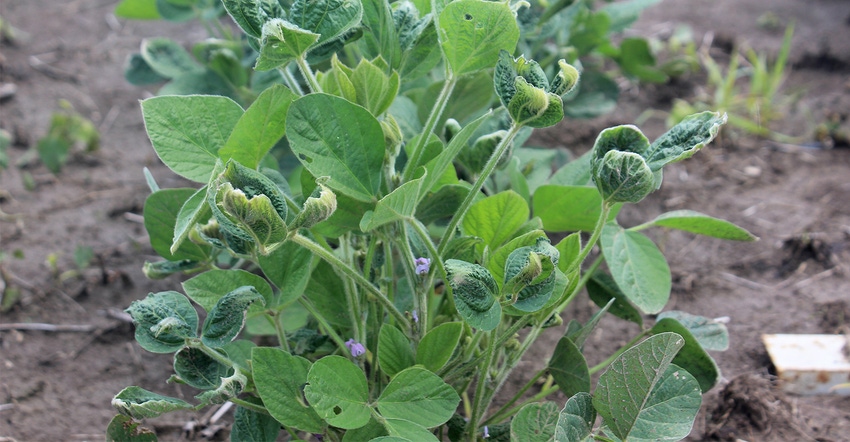
Missouri farmers wanting to use the low-volatility dicamba formulation in BASF’s Engenia will need to pay attention to the calendar, as the Missouri Department of Agriculture issued a special local need label for the product restricting use.
“We want to do things differently to prevent a repeat of 2017,” Missouri Department of Agriculture Director Chris Chinn said in an earlier interview regarding the status of the 24c Special Local Need label.
In October, the U.S. EPA issued additional clarification to Engenia, FeXapan and XtendiMax dicamba labels to tighten application procedures. EPA established the three herbicides as restricted-use products (RUP). The move came after states like Missouri saw their numbers of dicamba-related complaints top 300.
“I think it is important for farmers and ranchers to remember that we are only on a two-year temp registration from EPA on this new dicamba formulation,” Chinn said. “So the EPA is watching. 2018 is year 2; it is important now more than ever to follow labels,” adding that how agriculture and agricultural business responds will determine the fate of this new technology.
Application timing
The 24c Special Local Need label halts applications on June 1 in the state’s southeast region, which includes the Bootheel counties of Dunklin, Pemiscot, New Madrid, Stoddard, Scott, Mississippi, Butler, Ripley, Bollinger and Cape Girardeau.
All other areas of Missouri will need to cease spraying July 15.
Also, the product cannot be applied before 7:30 a.m. or after 5:30 p.m.
The restrictions were determined based upon feedback Chinn and her department received from stakeholders and analysis of alleged crop injury complaints filed during the 2017 growing season.
“Through countless conversations and meetings, we were able to reach a compromise — one that is proactive and provides certainty for farmers as they make their decisions for 2018,” Chinn said. The process included input from growers, researchers, industry partners, and farm and commodity organizations.
But not just anyone can apply the product.
Certified applicators only
According to the special local need label, Engenia will only be sold and used by certified applicators. Those certified applicators must complete mandatory dicamba training provided by the University of Missouri Extension. Rob Kallenbach, University of Missouri assistant dean, Agriculture and Natural Resources Extension, said those training programs are in the works. He said the university is collecting materials and developing dates for winter training sessions. Kallenbach said there is likely to be an online component to the training. In order to purchase Engenia, applicators must present training verification to the retailer, pesticide dealer or distributor.
“Education is key,” Chinn said. “We need to have everyone applying these products in the correct manner as stated on the label.”
Before heading to the field, certified applicators must complete an online form prior to each application.
“Our intent in issuing the special local need label is to protect this technology for the future,” Chinn said. “We thoroughly reviewed the new label restrictions agreed upon by EPA and the registrants, and as much research data as possible, to come to this decision that I believe will protect the product and the producers.”
About the Author(s)
You May Also Like






